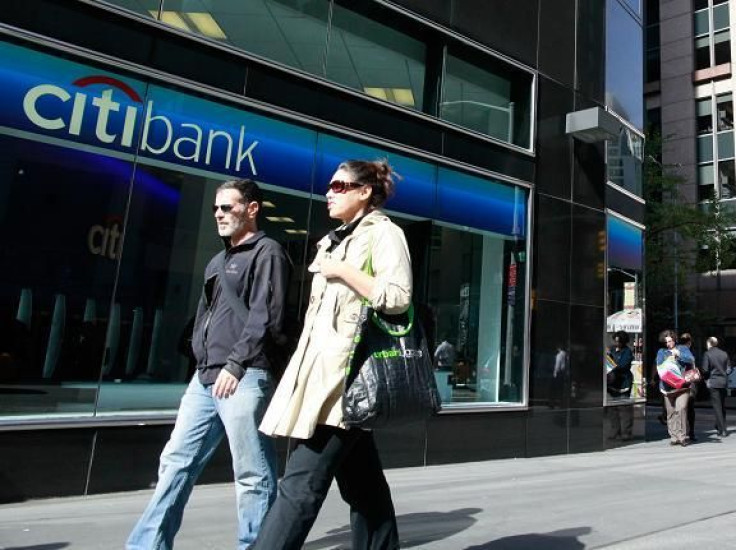US Banks Seek Exemption From More Than Half The Capital Buffer Required Under The Basel III Global Rules Known As Basel III

Five years removed from the near-collapse of the global financial system and just two years after institutions around the world agreed to a capital funding scheme to buttress bank balance sheet against a future crisis, U.S. banks are banding together and refusing to play ball, claiming they shouldn’t be forced to put more capital in their agreed-upon rainy day scheme -- even though they’re not even at the halfway point of achieving all the goals set in 2010.
A comprehensive report by London’s Financial Times noted on Monday that large U.S. banks, after coming up with $700 billion in additional buffer capital (as defined by the Basel III framework), are now “arguing that they would need to come up with an additional $800 billion” that the rules require them to contribute.
This new push by the banking sector comes after the powerful lobby already got the U.S. to push the compliance date past early 2013, giving them an advantage over European and Asian counterparts, which will have to meet capital requirements by then.
Indeed, the new rumblings of potential unilateral decisions in Washington and New York are threatening to bring down the global consensus, which was arrived upon after the financial crisis, about the need to create a level banking playing field devoid of recklessness, with one European bank CEO calling the U.S. banking lobby’s action “bull----” -- thereby allowing companies to ‘simply not ... comply.”
As a rule of the thumb, banks hate strict capital requirements, which require them to put up a certain amount of cash or “adjusted cash-equivalent” assets to back a percentage of their liabilities. The Basel rules ask the banks to have enough of these assets on hand to cover capital holes in certain scenarios, specifically ones where liquidity dries up in the market and they are forced to use reserve monies to patch up their balance sheets. Such rules require the banks to post a higher amount of insurance reserves than banks usually do to account for the possibility that, during a crisis, certain counterparties might not make good on their payments. While the specifics are complicated, the main issue is the following: the higher the capital reserve requirements, the lesser the volume of loans and bets on the financial markets the bank can make using their available cash as collateral; and the lower the volume of loans and bets it is allowed to make, the less profitable the bank is.
U.S. banks seem determined to draw a line in the sand around their current levels of capitalization, saying no más to regulators who ask when the other half of their capital buffer is coming. To pull off this position convincingly, they’re essentially taking the tack that the Basel rules are overstating how badly bank balance sheets would be hit during a future crisis. Where Basel suggested they should have enough money to survive in case a panic causes 75 percent of the deposits made by corporations, trade unions and government entities to suddenly fly out their doors, banks are saying it’s preposterous to think more than 40 percent of those assets would be pulled even in a worst-case scenario. Where Basel suggests banks should be ready for a massive bank run that results in 5 percent of all depositors pulling out their cash in less than thirty days, banks are now saying no more than a 3 percent assumption is reasonable. Where Basel essentially treated it as a given that in a frozen credit market nearly all synthetic derivatives would be impossible to trade (and hence, at least temporarily, worthless), banks are saying that belief is too harsh.
Secondly, banks are asking for more lenience in terms of posting the collateral they have as valid “cash equivalent” assets. Here, the banks are essentially asking to use junk bonds they already have on their portfolios to get to the numbers they promised in 2010 and call it a day.
It is not clear if the U.S. banking industry will get everything on its wish list for Basel this Christmas season. But it is surely asking loudly for what it wants, even presenting its argument as fait accompli during a meeting last week of the international committee reviewing Basel implementation.
Besides leaving U.S. banks on a more precarious footing than regulators envisioned two years ago when they crafted the next steps of the Basel regime, international regulators fear the exceptionalism to international rules that U.S. banks are claiming they are entitled to, and they are concerned those banks will topple the framework for overall global financial regulations.
“There is a risk of non-harmonized regulation and unnecessary complexity given the re-fragmentation of regulation into domestic markets,” Credit Suisse chairman Urs Rohner told Euromoney News earlier this year, “This creates layers of conflict, it’s costly and more risky given the operational risk [associated with competing rather than harmonized standards].”
© Copyright IBTimes 2024. All rights reserved.











